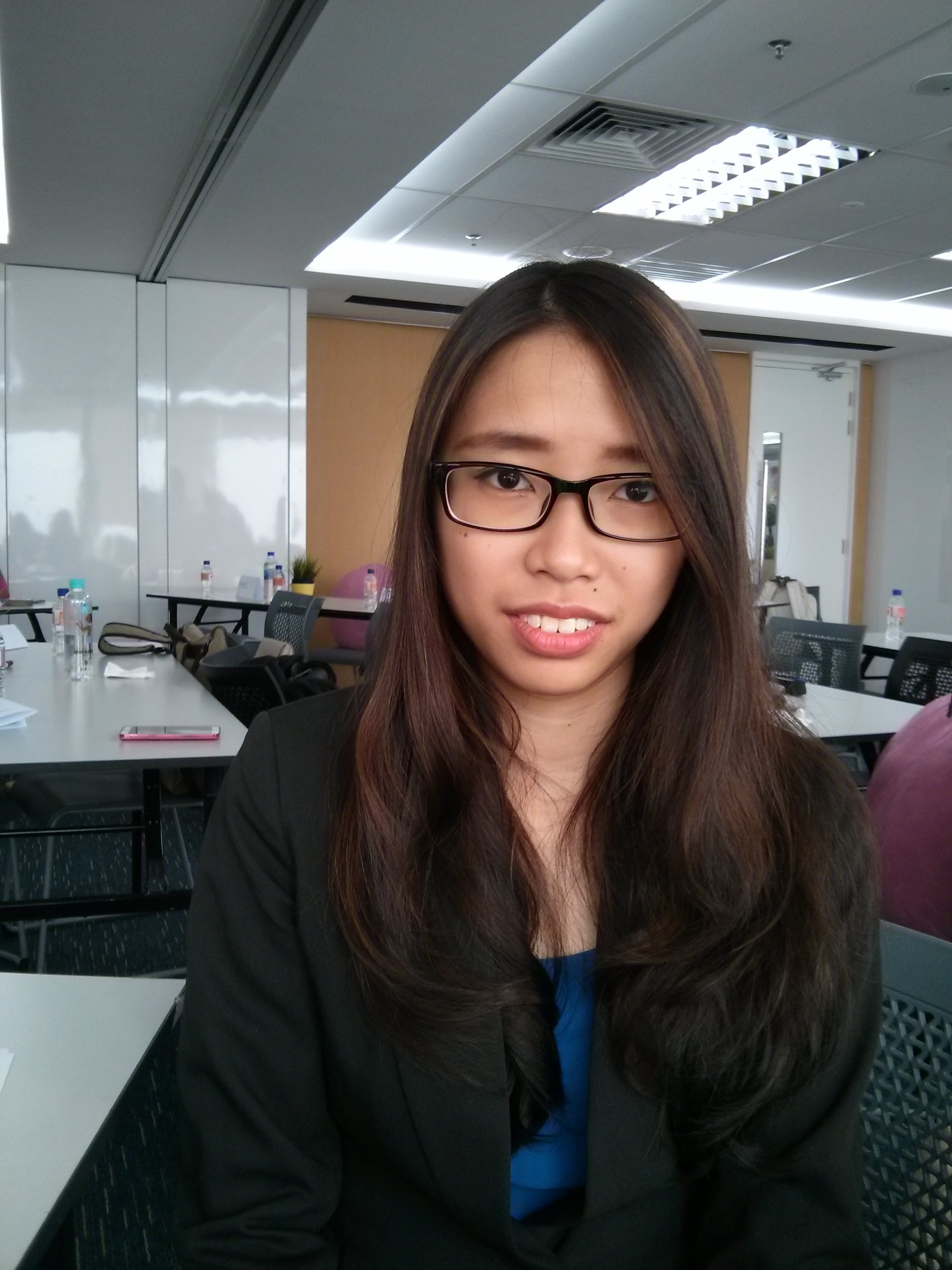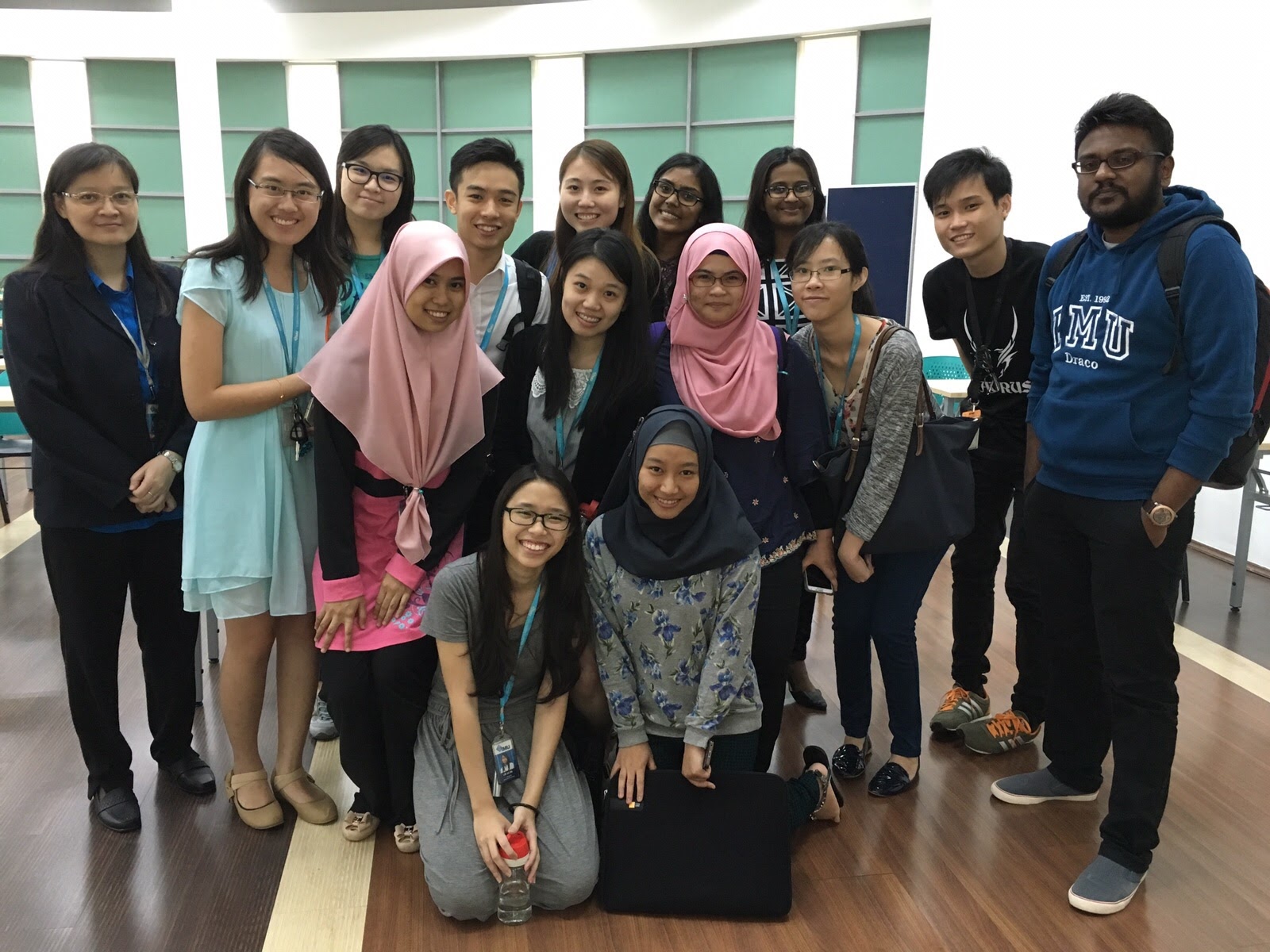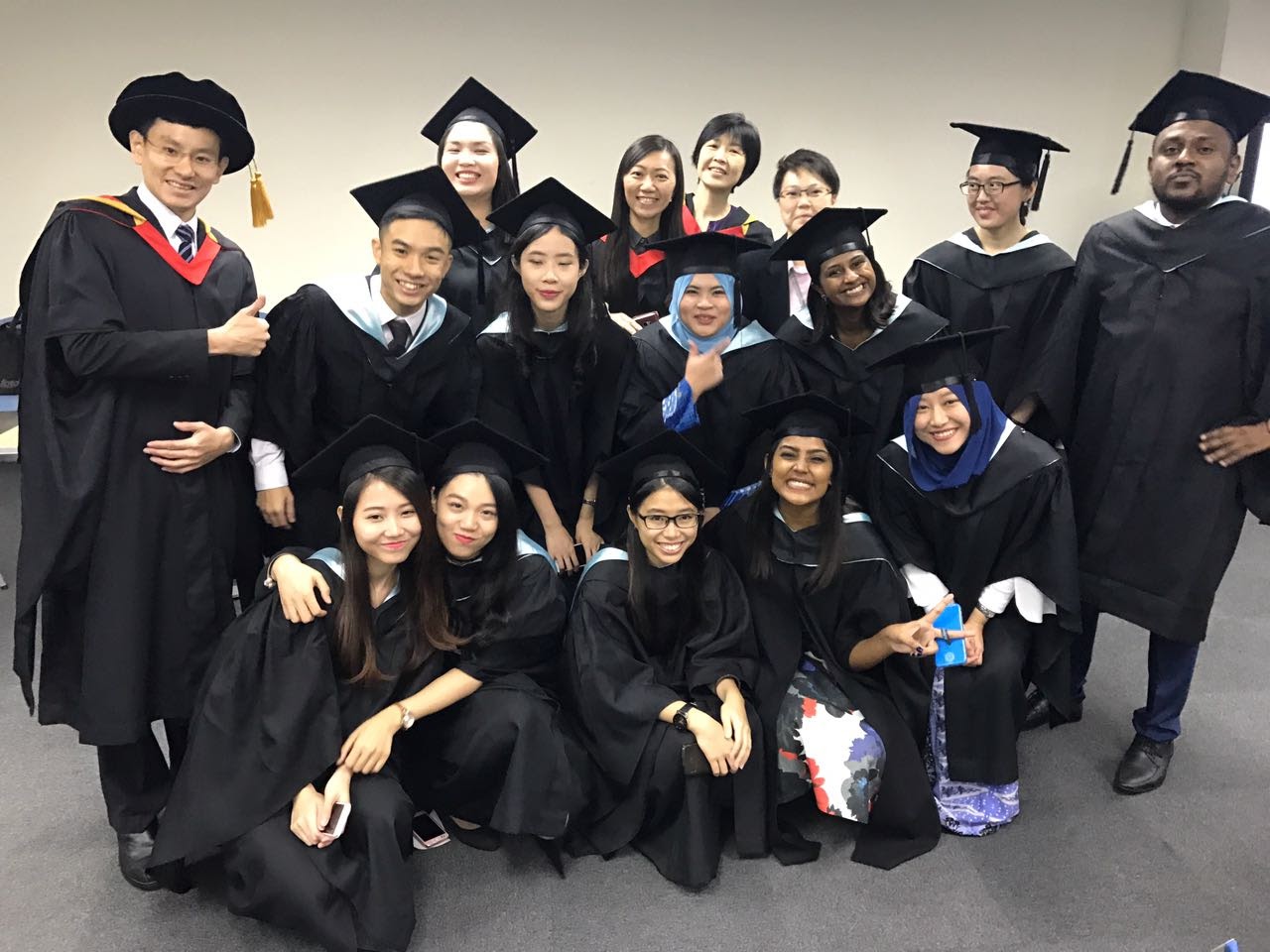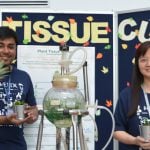Lim Jia Xin’s interest in biotechnology led her to start her studies in medical biotechnology (MB) at IMU in 2013 and she graduated three years later. She currently attached to Fermetec Medical Sdn Bhd in Ampang, a company specialising in the sales and services of sports science and medical equipment. Her duties at work include understanding the company products, building rapport with clients, and understanding the client’s requirement so that the company can provide products to cater to its client’s need. Why you chose MB/MB in IMU? I was interested in biotechnology, specifically in genetic engineering when I was studying my A-Levels. When choosing which university to apply, I googled for the universities with the best biotechnology course and IMU come out as one of the top 3 choices. After much consideration, I decided to choose MB in IMU due to the convenient location and the relatively cheaper price amongst the other private universities. What I really liked about IMU is that the biotechnology programme offered is more focused on the medical aspect, instead of just agricultural or industrial biotechnology. Discuss your learning experiences in IMU MB programme The learning experience in IMU MB programme has been a pleasant experience, albeit a hectic one. The courses in the MB programme basically covers everything we need to know for entry level biotechnology, although I wished that we had more training with animal testing.  The MB class is a small one, therefore we’re all more closely knitted and I liked that kind of environment, where everyone can help each other academic wise but still have fun at the same time. Given our small class size, the MB lecturers were able to give more attention to each of us individually and this had helped immensely for my education. The practical sessions in MB, IMU are very helpful. Again, due to our small class size, each and every one of us were able to participate in the experiments and get the most out of the practical sessions. By the end of the programme, I can say confidently that we all have acquired the fundamental laboratory skills, as well as some of the more specialised ones, such as cell and tissue culture, pathology etc. The electives provided are quite interesting, which are neuroscience and traditional Chinese Medicine. The elective was a good addition to the courses we have in MB programme, although I wished that IMU could have provided more elective courses, such as second language or other related courses. Any modules or activities that you like the most, or any academic staff who inspire your future career or achievement? The module that I liked the most was cell and tissue culture techniques, where the practical sessions were extremely interesting and requires our full attention in order to perform well. We get to experience the whole process of cell and tissue culture, right from the beginning where we prepare the media till the end where we have to harvest the cells and continue with the analysis. I’m also quite fond of the visits that we went at least once every semester. The visits felt like field trips, with the addition of gaining knowledge of the usage of biotechnology in reality.
The MB class is a small one, therefore we’re all more closely knitted and I liked that kind of environment, where everyone can help each other academic wise but still have fun at the same time. Given our small class size, the MB lecturers were able to give more attention to each of us individually and this had helped immensely for my education. The practical sessions in MB, IMU are very helpful. Again, due to our small class size, each and every one of us were able to participate in the experiments and get the most out of the practical sessions. By the end of the programme, I can say confidently that we all have acquired the fundamental laboratory skills, as well as some of the more specialised ones, such as cell and tissue culture, pathology etc. The electives provided are quite interesting, which are neuroscience and traditional Chinese Medicine. The elective was a good addition to the courses we have in MB programme, although I wished that IMU could have provided more elective courses, such as second language or other related courses. Any modules or activities that you like the most, or any academic staff who inspire your future career or achievement? The module that I liked the most was cell and tissue culture techniques, where the practical sessions were extremely interesting and requires our full attention in order to perform well. We get to experience the whole process of cell and tissue culture, right from the beginning where we prepare the media till the end where we have to harvest the cells and continue with the analysis. I’m also quite fond of the visits that we went at least once every semester. The visits felt like field trips, with the addition of gaining knowledge of the usage of biotechnology in reality.  Share your internship experiences I did my internship in Malaysia Biotechnology Information Centre (MABIC) for 4 months. It was a great experience and I’m very glad that I chose MABIC for my internship. I’ve learned a great deal during my internship, thanks to MABIC’s CEO, Dr Mahaletchumy’s insistence on involving the interns in every aspect of the operation in MABIC. My favourite part of the internship is where we have to write articles and news reports for MABIC’s own publication, The Petri Dish and attend events organised by various biotechnology organisations and companies.
Share your internship experiences I did my internship in Malaysia Biotechnology Information Centre (MABIC) for 4 months. It was a great experience and I’m very glad that I chose MABIC for my internship. I’ve learned a great deal during my internship, thanks to MABIC’s CEO, Dr Mahaletchumy’s insistence on involving the interns in every aspect of the operation in MABIC. My favourite part of the internship is where we have to write articles and news reports for MABIC’s own publication, The Petri Dish and attend events organised by various biotechnology organisations and companies.
The writing of articles was very different from what we have to do in the university. I was able to learn the techniques of writing interesting and easily understandable articles, under the tutelage of Dr Mahaletchumy and The Petri Dish’s editor. I was able to try first hand in scientific journalism, and I found that I have great affinity for it. I enjoyed writing and explaining science to people, and it makes me feel proud to see my own articles printed, published and viewed by the readers.
I am glad of the opportunity to try scientific journalism, and I hope that my internship experience with MABIC can pave way for the juniors who are interested in trying or pursuing scientific journalism as their career.  How does IMU MB programme prepare you for your current position/appointment? The knowledge gained from IMU helps me to learn new information from my company quickly. Although the knowledge we have are very basic, it enables us to understand and learn newer and more advanced information. This skill is especially important for my job, where I have to familiarise with the various sports science and medical equipment. Without the basic knowledge, I would have a hard time understanding our own company’s product and that would hinder my performance in work.
How does IMU MB programme prepare you for your current position/appointment? The knowledge gained from IMU helps me to learn new information from my company quickly. Although the knowledge we have are very basic, it enables us to understand and learn newer and more advanced information. This skill is especially important for my job, where I have to familiarise with the various sports science and medical equipment. Without the basic knowledge, I would have a hard time understanding our own company’s product and that would hinder my performance in work.
The knowledge gained from MB programme also makes it easier for me to communicate with my clients, which mostly consists of lecturers, researchers, physiologists etc. My science background makes it easier for me to understand what the client needs.
The many presentations we did in university also helped in boosting my confidence in speaking, and I can present and explain our company’s products without difficulty.









